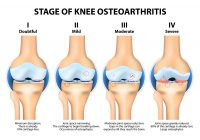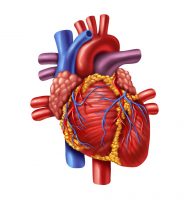
You Need These 5 Types of Exercise if You Have Osteoarthritis
Exercise will not cure osteoarthritis but will help you manage the symptoms and improve your quality of life. Here are five types of exercise you should do if you have this condition.
endurance exercise

Exercise will not cure osteoarthritis but will help you manage the symptoms and improve your quality of life. Here are five types of exercise you should do if you have this condition.

Do you play music during an endurance workout? Most people do, and there are advantages to doing so. Are certain types of music better for endurance exercise than others? Find out what science shows the best options are for your exercise playlist.

Exercise is a form of stress and one that your body adapts to in a positive way. However, exercise can also trigger a rise in cortisol, a stress hormone. Does all exercise cause a rise in cortisol? In this article you’ll find out how the cortisol response varies with the type of exercise you do.

Do you need a protein boost before a workout, and can it improve your performance? How about after your workout is over? Here’s what science says about consuming protein around the time of a workout and whether it can help your performance.

You’ve probably heard that endurance exercise is best for heart health and that strength training does little to improve heart function or protect against cardiovascular disease. However, a new study calls this into question. Can strength training lower your risk of cardiovascular disease too?

It’s clear that what you eat impacts the composition of your gut microbiome. But, can exercise change the composition of your gut as well? Find out what research shows about endurance exercise, your gut, and the health of your gut microbiome.

Does exercise increase the risk of a common, heart rhythm abnormality called atrial fibrillation? Here’s why exercise, in moderation, may be a good thing for the health of your heart and for your risk of developing a-fib.

Strength training and aerobic exercise – you need them both. But, what’s the best way to schedule them? Is it okay to do them on the same day? Find out what research shows about concurrent training.

Despite the fact that high-intensity interval training workouts are usually brief, they improve exercise endurance similarly to sustained periods of moderate-intensity exercise. Now, researchers believe they know why. You’ll also discover why you shouldn’t load up on antioxidants prior to a HIIT training session.

One technique athletes use for muscle recovery after a workout is cold showers an ice bath. Weight lifters sometimes do the same thing – but is this a smart practice? According to recent research, taking a cold bath doesn’t necessarily help with recovery or muscle soreness and could make it harder to reach your strength goals. Find out why.

Aerobic exercise and resistance training both change the structure of your heart, but in slightly different ways. After about three months of regular endurance exercise, the left ventricle in your heart begins to enlarge by dilating. Over time, the left ventricular wall becomes slightly thicker as well.

Do you take vitamin supplements, thinking it might help you achieve your exercise endurance and fitness goals? It might be time to rethink this practice. A new study shows some vitamins and supplements may actually interfere with the health benefits of exercise. Find out more.